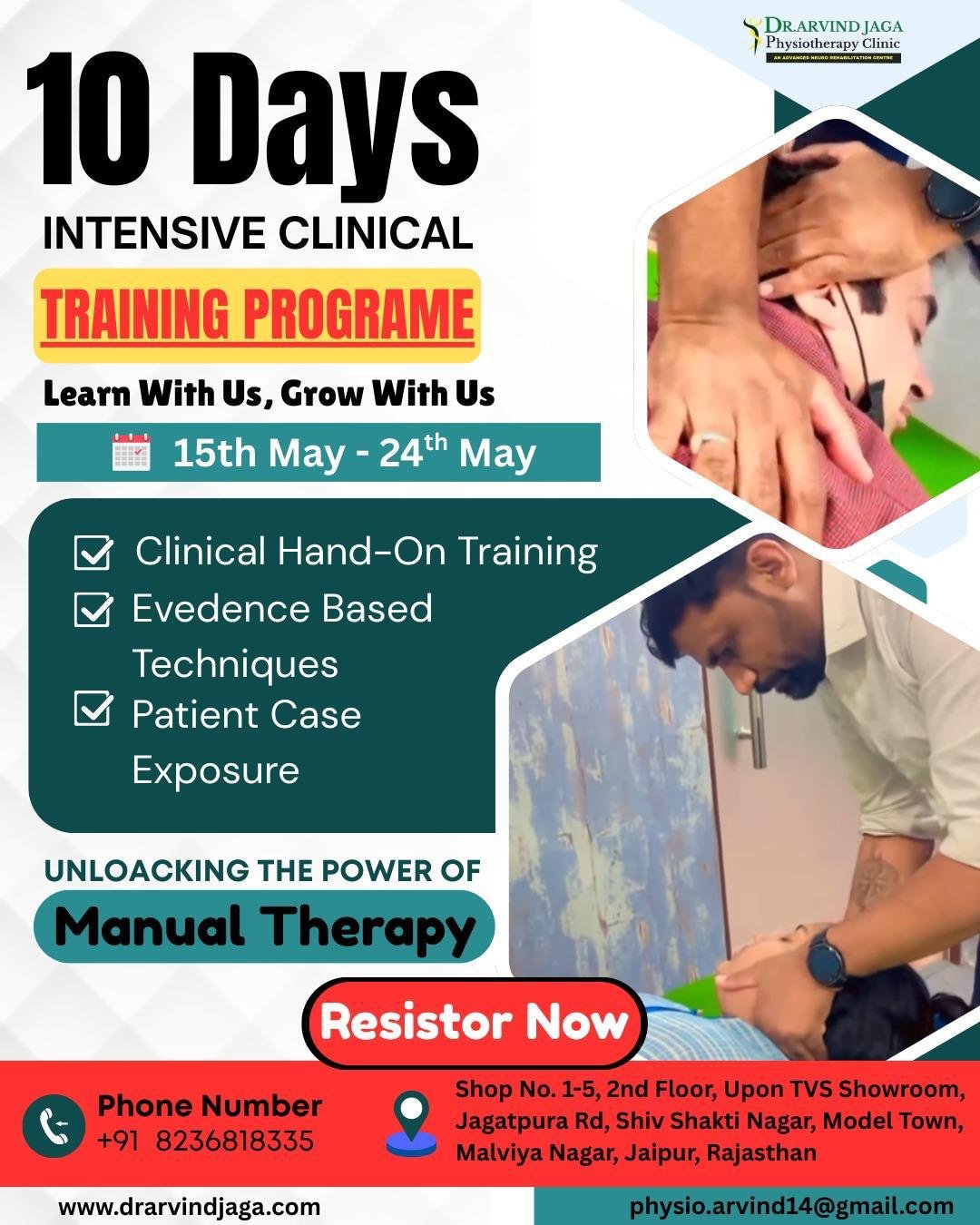Back Pain Treatment in Jaipur
Back pain is a widespread issue affecting millions of people worldwide, caused by various factors like poor posture, injuries, or medical conditions such as arthritis. For effective treatment, many individuals in Jaipur turn to Dr. Arvind Jaga, a highly skilled physiotherapist specializing in Back Pain Treatment in jaipur.
Dr. Jaga’s primary objective is to help patients regain mobility and alleviate pain quickly and safely. Recognizing that back pain can arise from muscle weakness, joint stiffness, and poor posture, he focuses on addressing the root causes rather than merely masking the symptoms.
When patients seek treatment from Dr. Jaga, he begins with a comprehensive evaluation of their condition. This involves understanding their symptoms, medical history, and prior treatments. Additionally, he may order diagnostic tests like X-rays or MRIs to gain a better insight into the underlying cause of the pain.
Based on this evaluation, Dr. Jaga creates a personalized treatment plan tailored to each patient’s specific needs. This plan may encompass a combination of exercises, manual therapy, and other appropriate treatments. He ensures the plan is realistic and manageable, taking into account the patient’s lifestyle and any co-existing medical conditions.
Dr. Jaga’s approach to Back Pain Treatment in Jaipur revolves around a holistic understanding of the body and its interconnected systems. Throughout the treatment process, he closely monitors the patient’s progress and makes necessary adjustments to optimize outcomes. With Dr. Jaga’s expert guidance and support, individuals can effectively overcome back pain and resume the activities they love.

Back pain can manifest in various symptoms, such as:
1. Persistent aching or stiffness along the spine, from the base of the neck to the tailbone.
2. Sharp, localized pain in the neck, upper back, or lower back, especially after lifting heavy objects or engaging in strenuous activity.
3. Chronic ache in the middle or lower back, particularly after prolonged sitting or standing.
4. Back pain that radiates from the low back to the buttock, down the back of the thigh, and into the calf and toes.
5. Inability to stand straight without experiencing pain or muscle spasms in the lower back.
The causes of back pain can be categorized as follows:
1. Mechanical Problems: These arise from the way the spine moves or feels during certain movements. Intervertebral disc degeneration, which occurs as the spinal discs break down with age, leading to loss of cushioning ability, is a common mechanical cause. Wearing down of facet joints, muscle spasms, and herniated discs (ruptured discs) are other mechanical factors contributing to back pain.
2. Injuries: Sprains and fractures in the spine can cause both short-term and chronic back pain. Sprains occur when ligaments supporting the spine tear due to improper twisting or lifting, while fractures often result from osteoporosis, weakening the bones.
3. Acquired Conditions and Diseases: Various medical issues can cause or contribute to back pain. These include scoliosis (spinal curvature), spondylolisthesis, arthritis forms (osteoarthritis, rheumatoid arthritis, and ankylosing spondylitis), and spinal stenosis (narrowing of the spinal column, putting pressure on the spinal cord and nerves). Osteoporosis can lead to painful fractures of the vertebrae, and conditions like pregnancy, kidney stones or infections, endometriosis, and fibromyalgia can also result in back pain.
4. Infections and Tumors: Although less common, infections can cause back pain when they involve the vertebrae (osteomyelitis) or the discs that cushion the vertebrae (discitis). Tumors, though rare, can also lead to back pain, either originating in the back or spreading from other parts of the body.
It is crucial to note that while the causes of back pain are often physical, emotional stress can play a role in its severity and duration. Stress can cause back muscles to become tense and painful. Untreated depression, anxiety, and insomnia can also exacerbate back pain. Addressing emotional well-being alongside physical treatment is essential for managing back pain effectively.
Back pain can manifest in various symptoms, such as:
- Persistent aching or stiffness along the spine, from the base of the neck to the tailbone.
- Sharp, localized pain in the neck, upper back, or lower back, especially after lifting heavy objects or engaging in strenuous activity.
- Chronic ache in the middle or lower back, particularly after prolonged sitting or standing.
- Back pain that radiates from the low back to the buttock, down the back of the thigh, and into the calf and toes.
- Inability to stand straight without experiencing pain or muscle spasms in the lower back.
The causes of back pain can be categorized as follows:
Mechanical Problems: These arise from the way the spine moves or feels during certain movements. Intervertebral disc degeneration, which occurs as the spinal discs break down with age, leading to loss of cushioning ability, is a common mechanical cause. Wearing down of facet joints, muscle spasms, and herniated discs (ruptured discs) are other mechanical factors contributing to back pain.
Injuries: Sprains and fractures in the spine can cause both short-term and chronic back pain. Sprains occur when ligaments supporting the spine tear due to improper twisting or lifting, while fractures often result from osteoporosis, weakening the bones.
Acquired Conditions and Diseases: Various medical issues can cause or contribute to back pain. These include scoliosis (spinal curvature), spondylolisthesis, arthritis forms (osteoarthritis, rheumatoid arthritis, and ankylosing spondylitis), and spinal stenosis (narrowing of the spinal column, putting pressure on the spinal cord and nerves). Osteoporosis can lead to painful fractures of the vertebrae, and conditions like pregnancy, kidney stones or infections, endometriosis, and fibromyalgia can also result in back pain.
Infections and Tumors: Although less common, infections can cause back pain when they involve the vertebrae (osteomyelitis) or the discs that cushion the vertebrae (discitis). Tumors, though rare, can also lead to back pain, either originating in the back or spreading from other parts of the body.
It is crucial to note that while the causes of back pain are often physical, emotional stress can play a role in its severity and duration. Stress can cause back muscles to become tense and painful. Untreated depression, anxiety, and insomnia can also exacerbate back pain. Addressing emotional well-being alongside physical treatment is essential for managing back pain effectively.



